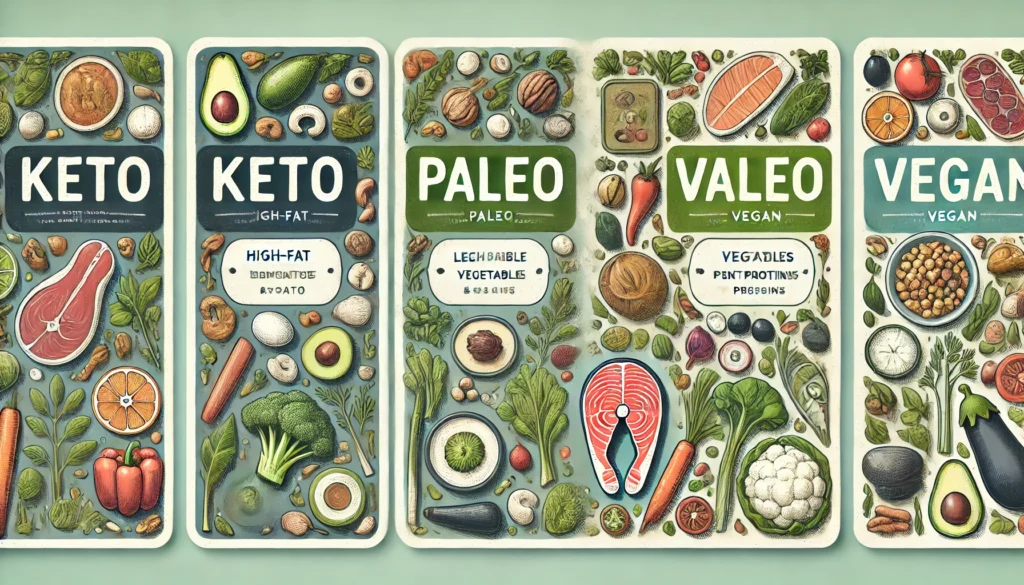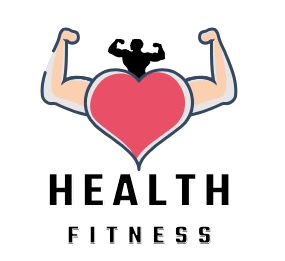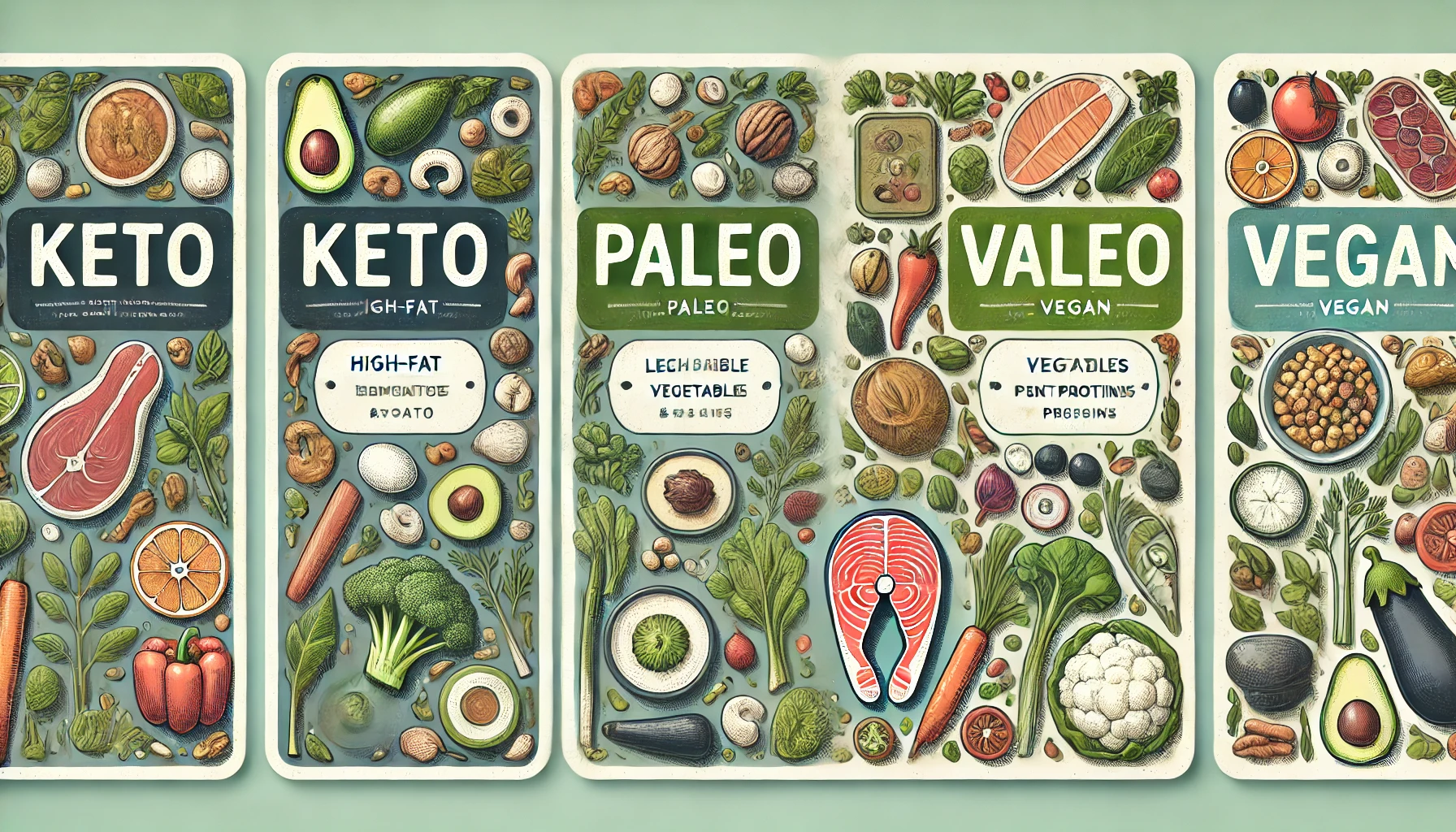Keto vs. Paleo vs. Vegan: Which Diet is Best for Weight Loss?

When it comes to weight loss, finding the right diet can feel like a maze. Among the popular choices, Keto, Paleo, and Vegan diets each offer unique paths with varied results. However, choosing the one that suits your lifestyle, health goals, and body needs can be challenging. Let’s dive into what each diet entails, how it supports weight loss, and how they compare so you can make an informed decision.
Understanding the Basics: Keto, Paleo, and Vegan Diets
1. Keto Diet
The ketogenic (keto) diet emphasizes high fat, moderate protein, and very low carbohydrates, aiming to shift the body into a metabolic state called ketosis. In ketosis, your body burns fat for fuel instead of carbohydrates, which is often why it’s a go-to for rapid weight loss.
Benefits for Weight Loss:
- Fast Initial Weight Loss: Due to the reduction of carbs, keto dieters often experience quick weight loss, especially in the first few weeks, as glycogen stores deplete.
- Appetite Suppression: Ketones can reduce hunger hormones, helping some people control cravings and feel full longer.
- Improved Insulin Sensitivity: Lowering carb intake may help stabilize blood sugar, potentially beneficial for those with insulin resistance.
Challenges: Strict carbohydrate restriction can be hard to maintain and may lead to nutrient deficiencies if not managed well. Some people also experience side effects, often called “keto flu,” during the transition.
2. Paleo Diet
The Paleo diet focuses on eating like our ancient ancestors, prioritizing whole foods and eliminating processed items, grains, dairy, and added sugars. It includes meats, fish, fruits, vegetables, nuts, and seeds.
Benefits for Weight Loss:
- Natural Calorie Control: Since the Paleo diet encourages whole, nutrient-dense foods, many people consume fewer calories without tracking.
- Reduced Sugar Cravings: Cutting out processed sugar can help reduce cravings, making it easier to stay on track.
- Lower Inflammation: By avoiding processed foods, some followers report reduced bloating and inflammation, aiding digestion and overall health.
Challenges: The Paleo diet can limit food variety, particularly for those who rely on grains or dairy for nutrients. Additionally, its allowance of higher-fat animal products may not suit everyone’s health goals.
3. Vegan Diet
The Vegan diet excludes all animal products, focusing entirely on plant-based foods. Many Vegans base their meals on vegetables, fruits, legumes, grains, nuts, and seeds, emphasizing high-fiber and nutrient-dense foods.
Benefits for Weight Loss:
- High in Fiber: Fiber-rich foods promote satiety, which can curb overeating.
- Lower Caloric Density: Many vegan foods are lower in calories per volume, meaning you can often eat more while consuming fewer calories.
- Improved Gut Health: Plant-based diets support gut health, which can aid in digestion and overall weight management.
Challenges: Vegan diets require careful planning to ensure sufficient protein and essential nutrients like vitamin B12, iron, and omega-3 fatty acids. Also, processed vegan options can be calorie-dense, which may hinder weight loss if not managed properly.
Comparing the Diets: Which is Best for Weight Loss?
1. Speed of Results
- Keto tends to produce the fastest initial weight loss due to water loss from carb depletion.
- Paleo and Vegan offer more sustainable, gradual weight loss since they don’t rely on quick metabolic shifts like ketosis.
2. Sustainability
- Vegan and Paleo diets are generally easier to maintain in the long term because they are more flexible.
- Keto requires consistent carb restriction, which can be challenging, especially in social settings or when cravings hit.
3. Nutritional Balance
- Vegan diets are rich in fiber, antioxidants, and vitamins, which support overall health and reduce inflammation.
- Paleo provides a balance of lean protein and whole foods, focusing on nutrient density but may lack calcium without dairy.
- Keto can lack fiber and some essential nutrients, so supplementing and careful meal planning are necessary.
4. Effects on Health and Fitness
- Keto may be better for quick weight loss and insulin control but is not ideal for athletes needing endurance.
- Paleo supports an active lifestyle with its allowance of carbohydrates from fruits and vegetables.
- Vegan diets, if balanced, can provide long-term health benefits and support active individuals by emphasizing plant-based proteins.
Choosing the Best Diet for Your Weight Loss Goals
When it comes to weight loss, there isn’t a one-size-fits-all answer. Your choice should align with your lifestyle, preferences, and health needs. Here’s a quick guide based on individual goals:
- If you want quick weight loss and can adhere to strict rules, the Keto diet might work. However, consult a healthcare professional to monitor health markers.
- For those interested in a balanced approach that includes animal protein but avoids processed foods, Paleo may be suitable.
- If you prefer a plant-based approach and want to reduce your environmental footprint while losing weight, Vegan could be the best option.
Ultimately, weight loss success relies on consistency, nutrient quality, and a diet that fits your life. It’s also essential to pair any diet with regular exercise, hydration, and adequate sleep for the best results.
Key Takeaways
- Keto: Fast initial weight loss, requires strict carb restriction.
- Paleo: Balanced, supports whole foods, moderate restriction.
- Vegan: High in fiber, supports gut health, sustainable.
All three diets can aid weight loss, but each has unique characteristics that may suit different lifestyles and preferences. Choosing one that aligns with your habits and health goals can make a significant difference in achieving long-term success.


Recent Comments